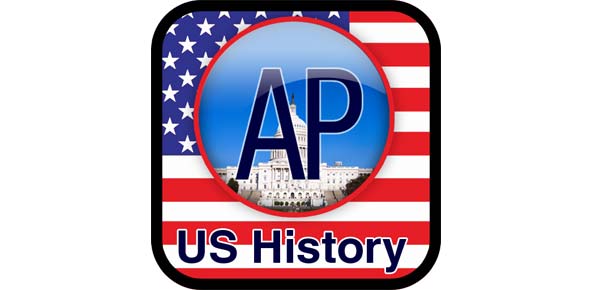The invention that transformed the southern cotton economy was...
Southerners demanded a more effective fugitive-slave law to stop the...
Free blacks enjoyed considerable status and wealth in both the North...
Even though they owned no slaves, most southern whites supported the...
The proposed admission of California directly into the Union was...
Poor whites supported slavery because it made them feel racially...
Polk's victory in 1844 was interpreted as a mandate for the Manifest...
The primary goal of Commodore Matthew Perry's treaty with Japan in...
After about 1830, the South no longer tolerated even moderate...
In the dispute with Britain over Oregon, the United States repeatedly...
Most southern slaveowners owned twenty or more slaves
The outcome of the Mexican war became a source of continuing bad...
Under the terms of the Compromise of 1850,
The Pierce administration's expansionist efforts in Central America,...
A primary motive driving Americans to annex Texas was fear that the...
Among the economic consequences of the South's cotton economy was...
The conflict over slavery after the election of 1852 led shortly to...
The overwhelming American military victory over Mexico led some...
The greatest political winner in the Compromise of 1850 was the South.
The Kansas-Nebraska Act wrecked the Compromise of 1850 and created...
Britain eventually lost out in the contest for the disputed Oregon...
The greatest winner in the Compromise of 1850 was...
Douglas's Kansas-Nebraska Act was intended to organize western...
The southern planter aristocracy was strongly attracted to medieval...
Most slaveowners treated their slaves as...
The phrase "spot resolutions" refers to...
The Treaty of Guadalupe Hidalgo ending the Mexican War provided for...
By the 1840's, the bitter memories of two Anglo-American wars had...
In the key provisions of the Compromise of 1850, New Mexico and Utah...
Among the major sources of tension between Britain and the United...
Texas was finally admitted to the Union in 1844 as a result of...
The condition of the 500,000 or so free blacks was...
Most of the early abolitionists were motivated by...
Among the notable advocates of compromise in the controversy over...
After 1830, most southerners came to look on slavery as...
The immediate cause of the Mexican War was an attempt by Mexico to...
The final result of the British-American conflict over the Oregon...
During the early 1840s, Texas maintained its independence by...
Slavery almost completely destroyed the black family
The election of 1848, the response of the Whig and Democratic parties...
Abolitionists like William Lloyd Garrison quickly attained great...
The Free Soil party consisted of a small, unified band of radical...

















